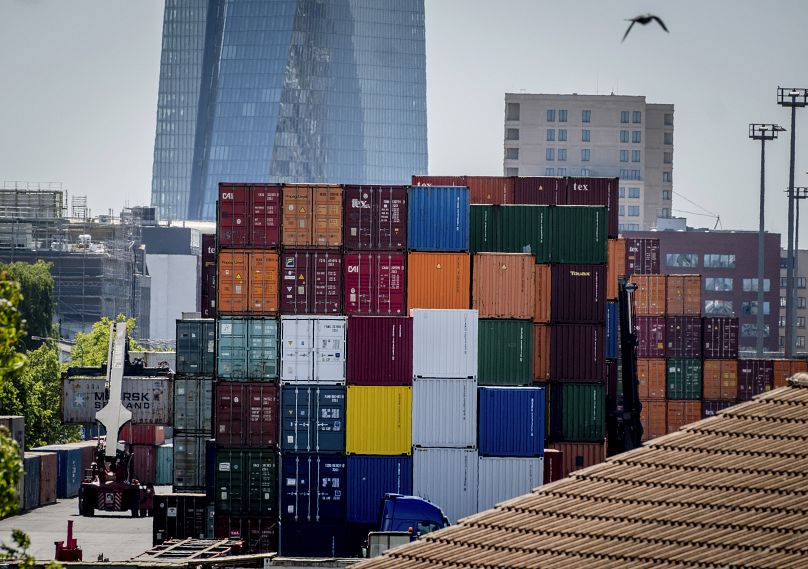Inflation in Europe has dropped to 6.1%, but some experts warn that consumers won't immediately see a difference on market shelves.
Europe's inflation rate took a positive turn with a significant drop to 6.1%, but consumers are yet to see real relief in what they pay for food and other necessities.
The annual figure in May eased from 7% in April for the 20 countries that use the euro currency, the European Union’s statistical agency Eurostat said Thursday.
Inflation in Germany, France and Italy - the three largest economies to use the currency - fell by 6.1%, 5.1% and 7.6% respectively.
It was a welcome sign that the explosion in price increases – which peaked in record double digits last October – is heading in the right direction.
But economists warned that it will be many months before disgruntled consumers see more normal levels of inflation reflected on price tags in shops.
Food prices in the eurozone rose by a painful 12.5% in May from a year earlier but still eased from the 13.5% increase recorded in April.
Key to the lower overall inflation figure was energy prices, which fell 1.7% from a year ago following an increase of 2.4% a month ago.
Core inflation, which excludes volatile food and energy, fell to 5.3% from 5.6% in April. That figure is seen as the better indication of price pressures in the economy from demand for goods and higher wages.
It's high enough that the European Central Bank is expected to approve another interest rate increase at its 15 June meeting.
Inflation took off in mid-2021 when initial fears of Russia's full-scale invasion of Ukraine caused natural gas and oil prices to spike due in part because of worried that there would be a drop in supplies. A situation that came as the global economy bounced back from the worst of the COVID-19 pandemic, straining supplies of parts and materials.
Germany, which is in recession, has tried to cushion the blow of high energy prices with subsidies for households and businesses and discounted public transit tickets.
That partly helped stem rising energy costs, but the cost of food in the country is still surging.
The eurozone dodged recession in the early months of the year, thanks largely to governments scrambling to line up non-Russian sources of natural gas to avoid an energy catastrophe.
The economy grew only 0.1% in the first three months of the year.
Also weighing on economic growth are rapid interest rate hikes from the European Central Bank as it tries to wrestle inflation toward its target rate of 2%.
Higher interest rates influence the cost of borrowing across the economy, making it more expensive to get a mortgage to buy a house or a business investment loan – in turn, reducing demand for goods that drives inflation higher.












